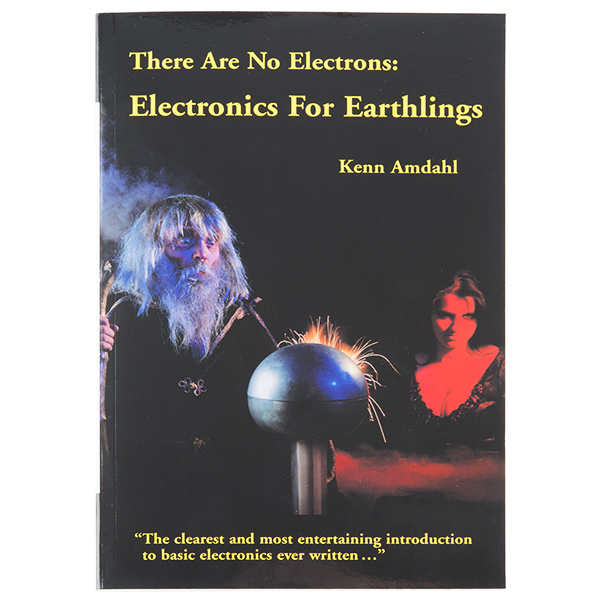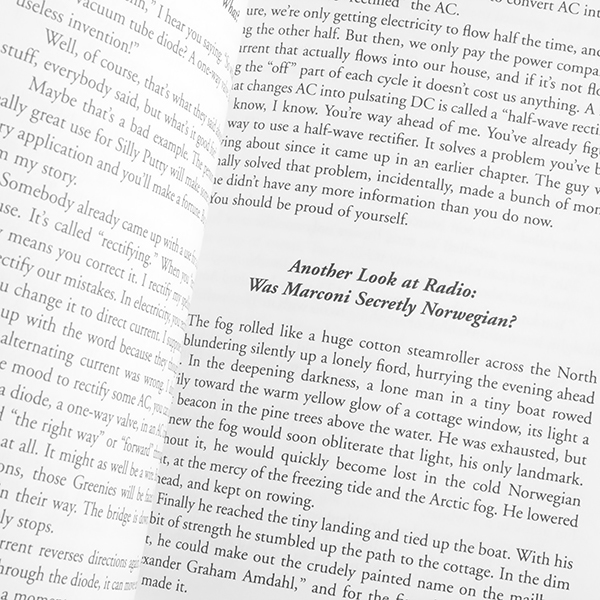There Are No Electrons: Electronics for Earthlings
There Are No Electrons: Electronics for Earthlings is an astounding book that provides the clearest and most entertaining introduction to basic electronics ever written. This book isn't afraid to present complicated concepts in easy to remember ways and all the while remain entertaining. There Are No Electrons gives you comparisons like a nuclear bomb equating to a watermelon with rubber bands wrapped around it, and even little green men running through little roads trying to get to little green women to explain electrons. Kenn Amdahl gives us a wacky, yet factual, view into the world of electronics.
After seeing the movie “Star Wars,” Kenn Amdahl realized that his young sons suddenly knew everything about Wookies and the Force, effortlessly, without study. Their minds were alert and engaged by all the fun in the movie, and therefore receptive to learning anything. Yoda could have taught them Chemistry. On the other hand, if Han Solo and light sabers were described in the style of some traditional text books, they would seem dull as Victorian pinochle players. Darth Vader would be as hard to remember as the fourth President of the United States, whoever that was. Kenn wondered if one could write engaging books on dull subjects that would make learning as effortless as watching a movie. To test his idea he wrote this book to explain the concepts of electricity, careful to keep the pace lively, the reading easy, entertaining, and irreverent. One would have to say it worked rather well.
You don’t need a desire to learn about electricity to enjoy this book, any more than you need a desire to understand light sabers to enjoy Star Wars. The learning is a bonus: You won't be able to prevent it! Besides, what other electronics book have you read that includes comments from Dave Barry, Ray Bradbury, Clive Cussler, and George Garrett?
Info:
- Author: Kenn Amdahl
- Publisher: Clearwater Publishing Company, Inc.
- Paperback: 258 pages
- ISBN-10: 0962781592
- ISBN-13: 978-0962781599
Comments
Looking for answers to technical questions?
We welcome your comments and suggestions below. However, if you are looking for solutions to technical questions please see our Technical Assistance page.
Customer Reviews
1 out of 5
Based on 1 ratings:
3 of 5 found this helpful:
Junk
I bought the book looking for a fresh look at teaching electronics because that is what I do. Unfortunately , while admittedly different, this book was more like listening to a washed up teacher trying to prove that he could teach electronics. The concepts employed of story telling where just plain dull and boring. I learned nothing that I could use to teach kids. The book is full of accolades from people, which seems to pump it up artificially (again, a teacher needing an audience). I found it difficult to believe people actually liked the book. I would never recommend this book.



